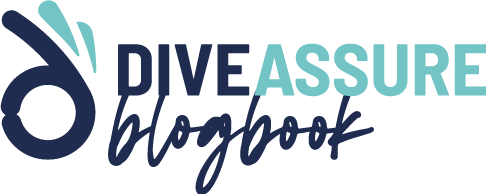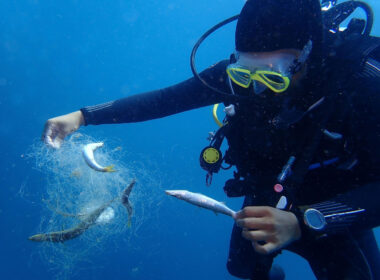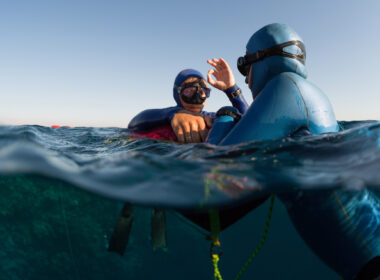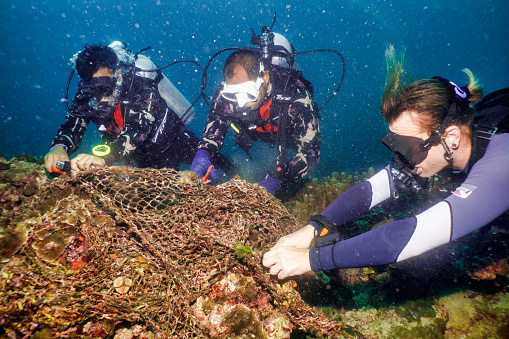Dive professionals are really making a difference when it comes to eco-conscious practices and having a positive impact on our planet. As a dive professional, you have a fantastic chance to make a real impact on the world. The great thing is, you can extend your influence far beyond just underwater safety and education. You can play a big part in protecting marine ecosystems! Green Fins training is a really useful tool for achieving this!
Why Sustainable Diving is Vital for Marine Conservation
As more and more people are getting into diving, we have a great opportunity to protect the marine ecosystems that make this experience possible. If we embrace sustainable diving practices, we can make a real difference. Using the right practices helps to preserve the incredible beauty and biodiversity of our marine environment, and it also ensures the future viability of the diving industry. It’s a win-win! We can all play our part by avoiding unsustainable practices such as damaging coral reefs, disturbing marine life or contributing to pollution. Let’s dive into the key reasons why sustainable diving is essential for marine conservation!
The Impact of Irresponsible Diving on Coral Reefs and Marine Ecosystems
Coral reefs are some of the most beautiful, yet fragile ecosystems on the planet and are highly vulnerable to damage from careless divers. Touching corals, disturbing sediments or anchoring boats improperly can lead to coral bleaching and habitat loss, disrupting the entire marine ecosystem.
The Long-term Consequence of Environmental Degradation on Dive Sites
As dive sites suffer from environmental degradation, they lose their appeal to divers and tourists. Word soon gets around if a once top diving destination has been spoiled by mass-tourism, overfishing and/or pollution, even faster since the world of social media where a few well-known influencers can spread news faster than a wildfire. Over time, popular destinations can become inaccessible or restricted due to conservation efforts, leading to economic losses for local communities that depend on diving tourism.
The Growing Demand for Sustainable Tourism
With greater awareness of environmental issues, tourists are increasingly looking for eco-friendly travel options, including sustainable diving. Dive operators who adopt responsible practices not only contribute to marine conservation, but also cater to a market that values environmental stewardship. Sustainable tourism ensures that future generations will be able to enjoy and explore the underwater world.
The Influence of Dive Professionals on Diver Behavior
Dive professionals, such as instructors and dive masters, play a vital role in shaping the attitudes and actions of divers. Their influence goes far beyond teaching technical skills; they also serve as ambassadors for marine conservation. By educating divers about responsible practices and setting an example of eco-conscious behavior, they help to ensure that future divers have the same ethos and want to do their best to dive sustainably and preserve the marine environment. Here’s how dive professionals are key to promoting sustainable diving:
Dive Professionals as Role Models for Eco-conscious Behavior.
Dive professionals set the standard for how divers should interact with the underwater environment. By showing respect for marine life, avoiding contact with fragile ecosystems and promoting safe diving techniques. They model the behaviour that supports marine conservation efforts.
“I will never forget one of my worst ever dives where a diving professional showed little to no compassion for the underwater world. They would bend and snap corals just to ensure that everyone got to see the much sought after pygmy seahorse, pull octopus out of their holes to play with them, and rest on top of the reef or ocean floor rather than maintain neutral buoyancy – a sure way to ensure I will NOT be diving with that dive professional nor diving center ever again.” – Lily SSI IT/DiveAssure
The Importance of Educating Divers About Marine Conservation and Responsible Diving Practices:
Education is essential to promote an understanding of marine conservation. Dive professionals have a responsibility to inform divers about the impact of their actions, from maintaining buoyancy control to avoiding littering. This knowledge empowers divers to make informed decisions that protect the ocean.
How Dive Professionals Can Lead by Example During Dive Briefings and Underwater Tours.
Pre-dive briefings provide the perfect opportunity to educate divers about sustainable practices. By emphasizing the importance of respecting marine life and reinforcing eco-friendly practices throughout the dive, professionals can influence behavior in real time and guide divers towards responsible actions that minimize environmental impact. Besides that, it is also important to signal to a diver under the water if they are behaving inappropriately and to provide a proper debriefing. Remember, often people are unaware of the damage that their behavior might cause so tread carefully and discuss the topic in a neutral manner and with respect towards the other diver, be discreet and debrief as a group and give general feedback. If the behavior was really serious and perhaps deliberate, take them to one side and discuss one on one. As a dive center and or dive professional you should be able to decide if someone can dive with you again.
Green Fins Training: A Game-Changer for Dive Professionals
The Green Fins training provides diving professionals with the knowledge and resources they need to promote sustainable diving practices during their courses and guided dives. As marine ecosystems face more and more threats from human activities, this training gives dive instructors and guides the tools they need to play an active role in marine conservation. If dive professionals align their operations with Green Fins’ sustainability guidelines, they can make sure their activities have minimal environmental impact while also inspiring divers to do the same.
Discover more about Green Fins here.
The Green Fins Guidelines
Green Fins has put together a set of guidelines to help make sure that diving operations don’t have a negative effect on the environment. The guidelines focus on protecting coral reefs, managing waste responsibly and having respectful interactions with marine life. The aim is to promote sustainability and long-term marine health. Here are some of the most important things that dive professionals should teach divers, along with why they matter:
- Be a role model by following the Green Fins Code of conduct: Dive professionals should set the standard by leading by example and showing guests how to act responsibly.
- Get involved in regular beach and underwater clean-ups: This helps to reduce marine debris and keep dive sites healthy.
- Support and Appeal for Mooring Buoys in your area: If you can, help develop, implement, or use moorings instead of anchoring. If you do have to anchor, make sure you place it carefully to avoid damaging marine habitats.
- Never sell or display corals, shells, or marine life. Corals, shells and marine life should remain in the water where they were found, we should also discourage our divers to buy any real marine life souvenirs.
- Get involved in marine life monitoring: Keep an eye on marine ecosystems and share your findings to help with conservation efforts.
- Provide proper trash facilities and dispose of waste responsibly. Make sure that waste from vessels is properly managed to prevent pollution.
- Don’t contaminate the ocean with toxic chemicals: Try to avoid using products that could harm marine life, such as oils, cleaning agents or certain sunscreens.
- Abide by the local environmental laws. Make sure you stick to the local, regional, national and international rules to make sure you’re complying with environmental protections.
- Include the Green Fins Code of Conduct in every dive briefing: It’s important to make sure that divers understand how to minimise their environmental impact before they enter the water.
- Make sure your staff and guests get the training and information they need. Provide education on good environmental practices for activities like diving, snorkelling, and marine life interactions.
- Provide environmental materials for those wanting to learn more about protecting the marine environment. Make sure you’ve got some educational resources (like ID books or posters) available for guests to learn more about marine conservation.
- Let your guests know about the marine protected areas. Outline the local regulations and how divers can help to protect these areas.
- Promote a strict ‘no touch’ policy for reef diving and snorkelling. This helps to stop damage being done to delicate coral reefs and other marine life.
How Green Fins training helps dive professionals teach environmentally friendly techniques:
The training gives dive professionals the practical tools they need to make sustainability part of everything they do. From showing divers how to control their buoyancy to minimizing the disturbance of marine habitats, instructors can teach them techniques that protect delicate ecosystems while making the overall diving experience better.
There are lots of reasons why dive professionals should get Green Fins certified. It’s not just good for the environment, it also makes you more credible and marketable. With more and more people thinking about the environment when they’re on holiday, certified professionals can attract clients who want to dive in a sustainable way. And of course, protecting the ocean is a great thing to do.
Check out “Original Travel” for facts and statistics on sustainable ocean tourism.
